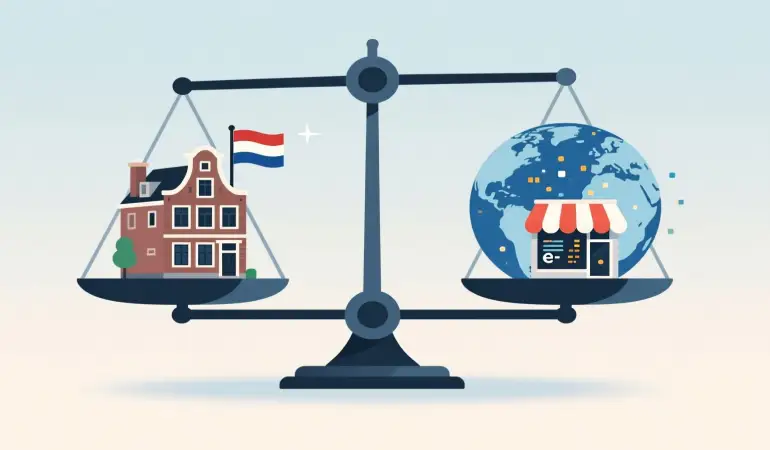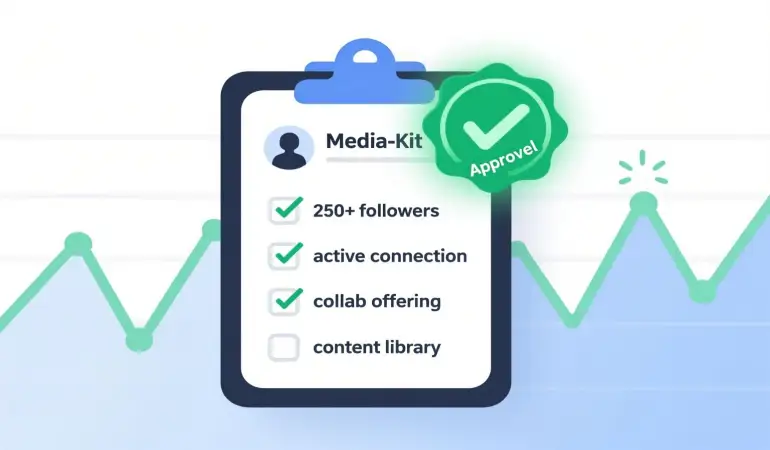Stop Hunting for the Perfect Niche: Find Fit in Everyday Moments
Stop chasing the perfect niche. Discover opportunities hidden in daily routines, place small bets, meet real needs, and build sustainable content or affiliate income.
July 09, 2024 16:19
Updated on Oct 2, 2025
Stop Hunting for the Perfect Niche: Find Fit in Everyday Moments
Letting Go of the Perfect Niche Myth
I used to hunt for the perfect niche as if it were a single shining
answer tucked away somewhere. There’s a quiet relief in admitting that no such
perfection exists. Niche opportunities are everywhere; the trick is learning
which ones fit the contours of your abilities, curiosity, and life.
The myth promises a magical place where success is automatic. That
pressure encouraged me to narrow too quickly, to second-guess ideas I liked.
Over time I realized that the “perfect” niche only becomes useful when it
aligns with what you can sustain doing, and with how people actually behave in
real moments.
Short commitment beats perfect planning.
That change of perspective freed me to try small things and observe. It
turned the hunt into an experiment instead of a quest for a holy grail.
What Niche Means in My Work
A Focused Product or Problem Space
When I talk about niche, I think first of a specific problem to solve. It
can be as narrow as a product design challenge, or as defined as an underserved
workflow. In practice, successful efforts start with a task someone is trying
to complete but keeps stumbling over.
For example, a product aimed at making mornings smoother for parents is a
focus area. The clarity comes from the task: streamline breakfast and school
prep. That focus helps design decisions, marketing language, and the metrics
that matter.
This perspective keeps projects honest. If what we build doesn’t
materially improve the task, it probably won’t stand up.
A Community Joined by a Shared Task
A niche is also a group of people who experience a common friction point.
It’s less about demographics and more about what they’re trying to do at a
moment in time. That shared purpose creates community naturally — people swap
tips, recommend products, and form rituals around the task.
I’ve watched small communities form around simple needs: evening
routines, weekend project planning, or gear choices for short trips. Those
communities often reveal subtle variations of the same task that a broad market
study might miss.
When members help one another, your work gains momentum without expensive
campaigns.
Finding Niches in the Moments of a Day
Mapping Daily Motion to Real Demand
Most of our lives consist of repeating moments: wake, commute, eat,
relax, sleep. Each moment carries tasks. If you map those daily motions, you
start seeing gaps where people struggle. That mapping becomes a tool for
uncovering real demand.
I sketch daily routines and annotate pain points. The act of writing them
down reveals opportunities that feel obvious in retrospect but weren’t visible
before. It’s a simple habit with surprisingly useful returns.
Small maps, big clarity.
One Task, Many Contexts: Home, Camping, Travel
A single task can play out in many settings. Take sleep: at home it’s one
set of requirements; while camping it’s another; on a business trip it shifts
again. Each context alters the criteria for a solution.
Seeing these contexts separately prevents conflating convenience with
necessity. A sleeping pad for backpacking and a mattress topper for home both
solve sleep quality, but they attract different purchase triggers, budgets, and
expectations.
Designing with context in mind makes solutions feel appropriate rather
than awkward.
What Makes a Niche Feel Right When Doing the Work
Meeting a Need at a Specific Moment
There’s an unmistakable satisfaction when you meet someone’s need exactly
when it arises. It’s not grand. It’s quiet and practical: your content or
product appears as the person is deciding, and it helps them move forward.
I chase that feeling now. It guides editorial choices and product
features more than high-level market size estimates. Meeting a need at the
moment often predicts loyalty better than broad appeal does.
Small, timely wins add up.
The Pull of Starting Activities
If a niche centers on starting an activity, it tends to be fertile.
People starting something need information, tools, and reassurance. They are
searching, comparing, and willing to try solutions.
I’ve noticed that beginners generate more consistent interest than
seasoned practitioners. The energy of a start — learning curves, excitement,
uncertainty — creates patterns of behavior that content and commerce can serve.
That pull toward beginnings makes niches feel alive.
Letting Passion Meet Profit with Clear Eyes
Interest as Fuel Not the Finish Line
I’ve learned to view passion as useful energy, not a guarantee. Loving a
topic helps produce sustained work, but love alone won’t ensure an audience or
revenue. Passion keeps you going through the slow months; commercial realities
shape what you publish and how you present it.
Treat interest as the engine. Then decide whether the route is viable
before committing all your fuel.
Comfort Knowledge and Stamina As Advantages
Comfort with a subject provides an edge. Familiarity speeds research,
deepens nuance, and makes the work less draining. Stamina is underrated: the
ability to show up week after week compounds into authority.
If you combine moderate profitability with consistent output and growing
trust, the long-term outcome often outperforms a fleeting high-margin hit
pursued without commitment.
Choosing with Content and Affiliate Sites in Mind
Beyond Write What You Love
The advice to write what you love is sound, but incomplete for content
projects meant to support a business. Interest must intersect with audience
demand and monetization paths. My decisions now are guided by three questions:
will people search for this? Can I create useful content about it? Are there
reasonable ways to monetize?
Run those questions honestly. If the answers are mostly yes, give it a
trial.
Profitability Without Losing Your Voice
Commercial considerations shape choices, but they need not erase
personality. Some of my best performing pieces keep a clear point of view while
gently pointing readers toward products that solve their problems.
Honesty builds trust. When recommendations are sincere, conversions
follow without sacrificing integrity.
Living the Breadth and Depth Tradeoff
A Broad Niche That Empowers Exploration
A broader niche gives you room to explore adjacent topics and find angles
that resonate. My site ended up wider than some would advise, and that breadth
allowed me to serve people at different stages. It also created a richer
content ecosystem where one piece funnels readers to another.
The tradeoff is focus for reach. Broadness works if you can organize
content so visitors find relevant threads quickly.
Why I Resisted the Micro Niche Path
Micro niche work can be tempting because it promises quick wins and less
competition. I resisted it at this website because I value the chance to teach
and guide a wider set of decisions. Narrow focus might have been more
immediately lucrative, but it would have boxed me in creatively.
That choice cost some early gains but gave me a platform that feels
useful to more people.
What I Would Tell My Earlier Self
Moments First, People Next, Tools Third
If I could speak to my past self I would say: start by cataloging moments
when people need help. Then think about who experiences those moments. Only
after that should you look for tools and platforms to reach them.
This order keeps you grounded in real problems rather than shiny tactics.
Make Small Bets and Keep Learning
I would also advise making small, reversible bets. Test formats, titles,
product ideas. Track real engagement, then iterate. Little experiments
accumulate into better instincts and fewer costly mistakes.
Learning on the job turned out to be more valuable than trying to predict
the perfect move in advance.
Closing Reflections on Fit Momentum and Patience
Choosing a niche has felt less like a single decision and more like
ongoing tuning. Fit matters: when your work aligns with what you can sustain,
momentum follows. Patience amplifies that momentum.
I still refine the focus. I still try things that might fail. The
difference now is a quieter confidence: niche choice is not final, and starting
small often beats waiting for certainty.
Eventually, progress looks plain — helpful answers, consistent small
wins, and a steady stream of people who return because the work met a need when
it mattered.






